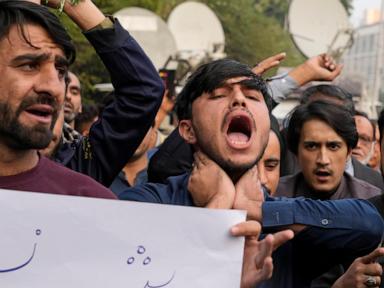ARTICLE AD BOX

The recent U.S. presidential election defied expectations, delivering results that will shape American politics in unpredictable ways. For only the second time in US history, a president won non-consecutive terms in office. Despite widespread predictions of a contentious transition, the handover from President Biden to President Trump was remarkably smooth.
This election did more than simply return Trump to office; it also gave the Republican Party control over both chambers of Congress, completing a “trifecta” of control across the executive and legislative branches. With this majority, Trump has moved quickly to form his cabinet, signalling his commitment to an assertive, and in some ways, radical policy direction. His cabinet picks have both reassured his base and stirred fresh controversy among Democrats and even some Republicans.
A Complex Blend
Trump's cabinet nominations have surprised many, reflecting his intent to shake up the status quo with a blend of political loyalty and unconventional figures. His picks for Secretary of State and National Security Advisor, Senator Marco Rubio and Congressman Michael Waltz, respectively, have been met with cautious optimism. However, other nominations have sparked bipartisan concern. Trump's choice of Pete Hegseth as Secretary of Defense, for instance, has been seen as a signal of a conservative re-evaluation of the military's role, funding, and structure. Known for his hawkish views, Hegseth is expected to push for a downsized but more targeted military approach, potentially bringing resources from long-standing international deployments to home.
Another controversial decision is Trump's decision to appoint Tulsi Gabbard as Director of National Intelligence. Gabbard, a former Democratic Congresswoman known for her anti-interventionist stance, has drawn scrutiny due to her critiques of US military actions abroad and her relatively diplomatic tone toward adversaries like Syria's Bashar al-Assad. Her stance on foreign interventions may face significant resistance from both sides of the aisle.
Why Some Names Have Raised Eyebrows
Trump's choices for domestic policy roles have provoked an even stronger backlash. His selection of Matt Gaetz as Attorney General and Robert F. Kennedy Jr. as Secretary of Health and Human Services has ignited concerns across the political spectrum. Gaetz, a controversial figure with ongoing legal issues, is perceived by critics as an overly polarising choice to lead the Justice Department. Similarly, Kennedy, known for his outspoken opposition to vaccines, raises questions about his suitability to lead a department overseeing national health policy.
Trump's establishment of the Department of Government Efficiency (DOGE), led by high-profile entrepreneurs Vivek Ramaswamy and Elon Musk, has been met with a mix of enthusiasm and scepticism. While the concept of streamlining government operations and reducing bureaucracy is appealing to many, the feasibility of such an initiative remains uncertain. DOGE's role is intended to be primarily domestic, targeting inefficiencies in agencies like the Department of State and the Pentagon, which are often criticised for sluggish operations. Yet, some fear that drastic cuts or restructuring could disrupt government functions, creating bottlenecks rather than improvements.
Amidst these appointments, there is growing speculation that Trump is prioritising loyalty over qualifications. Some Republicans have privately expressed concerns that certain nominees may struggle to pass Senate confirmation, even with the party's majority. This scenario would put Trump in a delicate position.
The Fringe Rules?
Democrats, for their part, have criticised Trump's cabinet selections, suggesting that his administration risks becoming insular, filled with figures from the political fringe. They warn that governing with a small, ideologically close circle could be the worst sounding board.
Despite the controversies, Trump's nominations for Rubio, Waltz, and Hegseth indicate a clear intent to strengthen America's role abroad through a resolute foreign policy. His administration appears focused on standing firm against rivals like China, reinforcing traditional alliances, and avoiding new military conflicts. At the same time, Trump's administration seems inclined to reduce military entanglements in ongoing wars, in line with his campaign promises to prioritise American interests.
For India, Trump's return to the presidency could mark a new chapter in US-India relations. Rubio and Waltz are both strong proponents of closer US-India ties, viewing the partnership as crucial for countering China's influence in the Indo-Pacific. Above all, Trump's personal rapport with Prime Minister Modi adds guardrails of certainty to the bilateral relationship.
While Trump's choices reflect his desire for a loyal team, they also signal his intention to challenge traditional governance structures and pursue a different vision for America's future.
(Harsh V Pant is Vice President for Studies at ORF and Professor at King's College London. Vivek Mishra is Fellow, Americas, at ORF.)
Disclaimer: These are the personal opinions of the authors
.png)
 4 days ago
1
4 days ago
1








 English (US)
English (US)